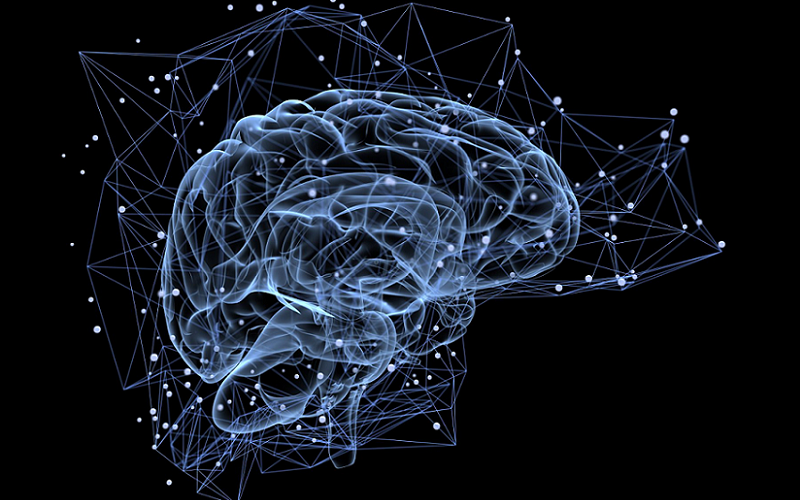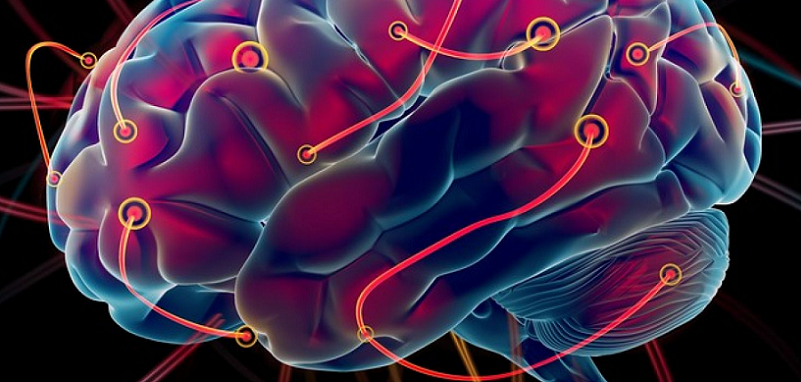
When we think of hormones and their influence on our health, we often gravitate towards their more prominent roles in growth, metabolism, or mood regulation. Yet, the vast network of these chemical messengers harbors many secrets that continue to unravel with ongoing research. One such hormone, Angiotensin (1-7), historically linked with blood pressure regulation, has recently been thrust into the limelight for its intriguing impact on brain health and cognition.
Contents
- Introduction to the Hormone System and Angiotensin (1-7)
- A Brief Overview of the Renin-Angiotensin System (RAS)
- Angiotensin (1-7) Beyond Blood Pressure: The Cognitive Connection
- The Interaction Between Angiotensin (1-7) and Other Hormones
- References
Introduction to the Hormone System and Angiotensin (1-7)
Delving into its role beyond just maintaining our cardiovascular rhythms, here we explore how Angiotensin (1-7) might shape our cognitive functions, potentially offering insights into neuroprotection, neurogenesis, and even diseases like Alzheimer’s.
Overview of the Hormone System and Its Impact on Cognition
The human endocrine system, a collection of glands producing hormones, is a sophisticated signaling network. These hormones act as chemical messengers, regulating everything from our physical growth to our daily mood swings. Cognition, the set of all mental abilities and processes related to knowledge, isn’t left untouched by this system. In fact, hormones such as cortisol, estrogen, and insulin, to name a few, have been proven to influence cognitive abilities in various ways, ranging from memory retrieval to problem-solving. Understanding these hormonal effects is vital, not just to grasp the nuances of our brain function but also to discover therapeutic paths for cognitive diseases.
Introduction to Angiotensin (1-7) and Its Known Role in Blood Pressure
Nestled within this complex hormonal tapestry is Angiotensin (1-7). A key component of the Renin-Angiotensin System (RAS), its most well-known function is to aid in regulating our blood pressure. To many, it’s a life-saver, playing a crucial role in preventing conditions like hypertension. However, what’s increasingly clear is that its role doesn’t stop at the heart. Recent research is showcasing that Angiotensin (1-7) has profound implications on our brain’s health, making it a molecule of significant interest in the world of cognitive science.
A Brief Overview of the Renin-Angiotensin System (RAS)
The Renin-Angiotensin System (RAS) is a remarkably intricate physiological system, with a primary role in regulating blood pressure and fluid balance within our bodies. This system’s proper functioning ensures that our organs, especially the heart and kidneys, work in harmony to maintain optimal blood flow. However, as with many physiological pathways, its influence reaches far beyond its most recognized duties.
The Traditional Role of RAS in Blood Pressure Regulation
Blood pressure regulation is vital for our survival. Too high, and we risk damaging our vessels and organs; too low, and our cells may not receive the oxygen and nutrients they require. The RAS operates like a finely tuned orchestra, with each component playing its part to maintain this balance. When blood pressure drops or when the kidneys sense a decrease in sodium levels, the enzyme renin is released.
This enzyme catalyzes the conversion of angiotensinogen, a plasma protein, into angiotensin I. Further transformations, especially the conversion of angiotensin I to its more potent form, angiotensin II, result in a series of effects like blood vessel constriction and release of aldosterone, ultimately leading to increased blood pressure [1].
Components of the RAS
Angiotensin I, Angiotensin II, and Angiotensin (1-7)
Angiotensin I
This is the initial active product of the RAS, created when renin acts upon angiotensinogen. While it has some minor physiological activities, its main role is to serve as the precursor to angiotensin II.
Angiotensin II
This peptide is the real star when it comes to blood pressure regulation. It prompts blood vessels to constrict, spurs the release of aldosterone (a hormone that prompts sodium and water retention), and signals the body to retain fluids. Together, these actions boost blood pressure.
Angiotensin (1-7)
Often overlooked in the shadow of its sibling, Angiotensin II, Angiotensin (1-7) emerges from the actions of the enzyme ACE2 on Angiotensin II. Interestingly, it often acts in opposition to Angiotensin II, promoting vessel dilation and exhibiting anti-inflammatory effects. Its unique attributes, especially in relation to brain function, are what make it our focus.
Angiotensin-Converting Enzymes: ACE and ACE2
Central to the operations of the RAS are the angiotensin-converting enzymes, ACE and ACE2. While both play roles in converting angiotensin forms, their specific actions and results differ.
ACE (Angiotensin-Converting Enzyme)
This enzyme is crucial for producing Angiotensin II from Angiotensin I. Given Angiotensin II’s potent role in raising blood pressure, ACE inhibitors – drugs that halt its action – have become staples in treating conditions like hypertension [2].
ACE2
This enzyme is the yang to ACE’s yin. Instead of producing Angiotensin II, it converts Angiotensin II to Angiotensin (1-7). Given the latter’s vasodilatory and anti-inflammatory properties, ACE2 has captured the interest of many researchers, especially in the context of cognitive health.

Angiotensin (1-7) Beyond Blood Pressure: The Cognitive Connection
While the Renin-Angiotensin System’s involvement in blood pressure regulation is well-established, recent investigations into Angiotensin (1-7) have unveiled an exciting realm of potential effects on the brain. This peptide, once overshadowed by the more renowned Angiotensin II, is now being recognized for its protective and regenerative actions in the central nervous system.
Neuroprotective Properties of Angiotensin (1-7)
The brain, with its delicate networks and precise signaling, is vulnerable to various insults, from oxidative stress to inflammatory responses. The neuroprotective properties of Angiotensin (1-7) are offering promising pathways to counteract these challenges.
Reduction of Oxidative Stress
Oxidative stress, caused by an imbalance between free radicals and the body’s ability to detoxify or repair the resulting damage, can lead to neuronal damage. Excitingly, studies have demonstrated that Angiotensin (1-7) can promote antioxidant defenses in brain tissues, mitigating the harmful effects of oxidative stress.
Mitigation of Inflammation in the Brain
Chronic inflammation in the brain is a known contributor to various neurodegenerative diseases. Angiotensin (1-7) has shown potential in reducing pro-inflammatory markers, suggesting a therapeutic avenue for conditions like Alzheimer’s and Parkinson’s diseases [3].
The Role of Angiotensin (1-7) in Neurogenesis
Neurogenesis, the process of forming new neurons, was once thought to be limited to early developmental stages. However, recent evidence suggests that certain regions of the adult brain, notably the hippocampus, retain this ability. Here’s where Angiotensin (1-7) enters the scene.
Promotion of Neural Stem Cell Growth
Neural stem cells serve as the reservoir for new neuron production. Recent laboratory studies have indicated that Angiotensin (1-7) might stimulate the proliferation of these cells, setting the stage for enhanced neurogenesis.
Enhancement of Synaptic Plasticity
The brain’s adaptability, or plasticity, hinges on the ability of synapses—the junctions between neurons—to strengthen or weaken over time. Angiotensin (1-7) appears to support synaptic plasticity, potentially bolstering cognitive functions like learning and memory.
Angiotensin (1-7) and Its Connection to Alzheimer’s Disease
Alzheimer’s disease, a leading cause of dementia, has been at the forefront of neuroscientific research for decades. The potential links between Angiotensin (1-7) and this debilitating condition are generating substantial interest.
Potential Therapeutic Applications
Some studies suggest that Angiotensin (1-7) might reduce the accumulation of beta-amyloid plaques — one of the hallmark features of Alzheimer’s. If substantiated further, this could revolutionize treatment approaches for this disease [4].
Current Research and Findings
While still in the nascent stages, a handful of studies are delving into Angiotensin (1-7) administration and its effects on Alzheimer’s disease models. Preliminary findings hint at improved cognitive function and reduced brain inflammation.

The Interaction Between Angiotensin (1-7) and Other Hormones
While Angiotensin (1-7) is captivating in its own right, understanding its interactions within the broader hormonal landscape adds depth to its role in cognitive health. The symphony of hormones within our bodies is interconnected, with each player influencing and being influenced by others.
Angiotensin (1-7) and Cortisol: A Dance of Stress and Relaxation
Cortisol, often termed the “stress hormone,” plays a pivotal role in our body’s response to stressful situations. Its elevations have been linked with cognitive impairments, particularly in memory processes. Angiotensin (1-7)’s relationship with cortisol is especially noteworthy.
Countering Cortisol-Induced Damage
Prolonged exposure to high cortisol levels can lead to neuronal damage. Research suggests that Angiotensin (1-7) may offer protective mechanisms against this damage, potentially by reducing oxidative stress and inflammation instigated by cortisol.
Regulating the Stress Response
Emerging studies hint at Angiotensin (1-7) playing a role in modulating the release of cortisol, thereby influencing how our bodies respond to stress. This modulation could have profound implications for mental health and cognitive resilience.
Interplay with Insulin: Bridging Cardiovascular and Metabolic Health
Insulin, a hormone central to glucose metabolism, has been spotlighted for its cognitive implications, especially in conditions like Alzheimer’s, sometimes referred to as “Type 3 Diabetes.” The interaction between Angiotensin (1-7) and insulin paints a fascinating picture.
Enhancing Insulin Sensitivity
Insulin resistance is a precursor to several metabolic disorders and has been linked to cognitive decline. Preliminary findings indicate that Angiotensin (1-7) might improve insulin sensitivity, thus promoting both metabolic and cognitive health [5].
Impact on Brain Glucose Uptake
Proper glucose metabolism is essential for brain function. There are indications that Angiotensin (1-7) might influence how the brain utilizes glucose, potentially optimizing cognitive processes and energy utilization.
Estrogen and Angiotensin (1-7): Partners in Neuroprotection?
Estrogen, a primary female sex hormone, has been recognized for its neuroprotective qualities, especially in the context of age-related cognitive decline. Its collaboration with Angiotensin (1-7) could amplify these benefits.
Combined Neuroprotective Effects
Both estrogen and Angiotensin (1-7) showcase abilities to mitigate oxidative stress and inflammation in neural tissues. Their combined action might offer a synergistic defense against neurodegenerative challenges.
Role in Post-Menopausal Cognitive Health
Post-menopause, estrogen levels decline significantly, leading to increased vulnerability to cognitive impairments. Research is exploring if Angiotensin (1-7) could counterbalance some of these effects, offering a potential therapeutic avenue for post-menopausal women.
References
[1] Angiotensin-(1-7) improves cognitive function and reduces inflammation
[2] Renin Angiotensin System in Cognitive Function and Dementia
[3] Angiotensin 1-7
[4] Development of Novel Angiotensin (1-7) Derivatives: For Treatment of Brain Inflammation Related Memory Impairment
[5] Promising neuroprotective effects of angiotensin-(1–7)

